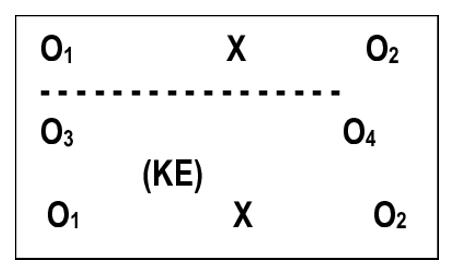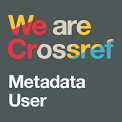Project Based Learning (PjBL) Model: Elementary School Students' Social Studies Learning Outcomes
DOI:
https://doi.org/10.51574/ijrer.v4i4.3904Keywords:
Elementary School Students', Learning Outcomes, Project Based Learning, Social StudiesAbstract
Social studies education not only provides factual knowledge but also equips students with a deep understanding of the social, cultural, and environmental realities in which they live. The project-based learning model has significant potential to enhance student learning activities, which in turn can positively contribute to social studies learning outcomes. Therefore, this study intends to examine the effect of the Project-Based Learning (PjBL) model on student learning outcomes in social studies. The research method used a quasi-experimental method with a nonequivalent control group design. The study population was fifth-grade students from nine elementary schools in Cluster I, Parangloe District, Gowa Regency. The sample was taken from elementary schools Inpres Pakkolompo and elementary schools Inpres Jenemadinging using a random sampling technique, with a total of 41 students. Data was collected through observation and objective tests, then analyzed using descriptive and inferential statistics. The results showed a significant effect of the implementation of the PjBL model on student activity, cooperative character, and learning outcomes. Based on the significance value (sig) obtained of 0.013, which is smaller than the commonly used alpha value (0.05), it was concluded that the implementation of the PjBL model significantly influenced learning outcomes. This study demonstrates the effectiveness of the project-based learning approach in improving student academic achievement. This study recommends the implementation of the PjBL model to increase student engagement and improve student learning outcomes in social studies in elementary schools.
References
Alpian, Y., Anggraeni, S. W., Rohayati, N., & Warsih, W. (2025). The Activity of Students in Problem-Based Learning and Project-Based Learning Models to Improve Social Studies Learning Outcomes in Elementary Schools. Jurnal Ilmiah Sekolah Dasar, 9(1). https://doi.org/10.23887/jisd.v9i1.91909
Aslamiah, A., Abbas, E. W., & Mutiani, M. (2021). 21st-Century skills and social studies education. The Innovation of Social Studies Journal, 2(2), 82-92. https://doi.org/10.20527/iis.v2i2.3066
Barton, K. C., & Avery, P. G. (2016). Research on social studies education: Diverse students, settings, and methods. Handbook of research on teaching, 5(1), 985-1038. https://www.torrossa.com/en/resources/an/5328173#page=998
Dewi, E. H. P., Akbari, S., & Nugroho, A. A. (2019). Peningkatan aktivitas dan hasil belajar biologi melalui model problem based learning (PBL) pada materi pencemaran lingkungan siswa kelas X SMA Negeri 1 Jatisrono. Journal of Biology Learning, 1(1). https://doi.org/10.32585/.v1i1.251
Dewi, N. K. N. A., Garminah, N. N., & Pudjawan, K. (2013). Pengaruh Model Pembelajaran Berbasis Proyek (Project Based Learning) terhadap Hasil Belajar IPA Siswa Kelas IV SDN 8 Banyuning. Mimbar PGSD Undiksha, 1(1), 1–10. https://doi.org/10.23887/jjpgsd.v1i1.674
Erol, H. (2021). Reflections on the 21st Century Skills into the Curriculum of Social Studies Course. International Journal of Education and Literacy Studies, 9(2), 90-102. https://eric.ed.gov/?id=EJ1303712
Fathurrohman, M. (2017). Belajar dan pembelajaran modern: konsep dasar, inovasi dan teori pembelajaran. Garudhawaca.
Fini, E. H., Awadallah, F., Parast, M. M., & Abu-Lebdeh, T. (2018). The impact of project-based learning on improving student learning outcomes of sustainability concepts in transportation engineering courses. European Journal of Engineering Education, 43(3), 473-488. https://doi.org/10.1080/03043797.2017.1393045
Gkintoni, E., Vantaraki, F., Skoulidi, C., Anastassopoulos, P., & Vantarakis, A. (2024). Promoting physical and mental health among children and adolescents via gamification—A conceptual systematic review. Behavioral Sciences, 14(2), 102. https://doi.org/10.3390/bs14020102
Grant, S. G., VanSledright, B. A., & Halvorsen, A. L. (2025). Elementary social studies: Constructing a powerful approach to teaching and learning. Routledge.
Guo, P., Saab, N., Post, L. S., & Admiraal, W. (2020). A review of project-based learning in higher education: Student outcomes and measures. International journal of educational research, 102, 101586. https://doi.org/10.1016/j.ijer.2020.101586
Hairunisa, H., Hakim, A. R., & Nurjumiati, N. (2019). Studi Pengaruh Model Pembelajaran Berbasis Proyek (Project Based Learning) Terhadap Kreativitas Mahasiswa Program Studi PGSD Pada Mata Kuliah Konsep Dasar IPA. Jurnal Pendidikan Mipa, 9(2), 93-96. https://ejournal.tsb.ac.id/index.php/jpm/article/view/190
Jay, L. (2022). The disciplinary and critical divide in social studies teacher education research: A review of the literature from 2009–2019. Theory & Research in Social Education, 50(3), 339-374. https://doi.org/10.1080/00933104.2022.2077156
Knudsen, H. (2017). John Hattie: I’ma statistician, I’m not a theoretician. Nordic Journal of Studies in Educational Policy, 3(3), 253-261. https://doi.org/10.1080/20020317.2017.1415048
Kokotsaki, D., Menzies, V., & Wiggins, A. (2016). Project-based learning: A review of the literature. Improving schools, 19(3), 267-277. https://doi.org/10.1177/1365480216659733
Mandouit, L., & Hattie, J. (2023). Revisiting “The Power of Feedback” from the perspective of the learner. Learning and Instruction, 84, 101718. https://doi.org/10.1016/j.learninstruc.2022.101718
Meling, Å. (2022). Political-ideological normativity in Norwegian primary and lower secondary social studies education: An analysis of current learning objectives. Social Sciences and Education Research Review, 9(1), 33-44.
Musdalifah, M., Widowati, A., Suyanta, S., Nurohman, S., & Rejeki, S. (2023). Implementation of Interactive Science Ebook Innovation Based on Project-Based Learning (PjBL) to Enhance Students Critical Thinking Skills. Jurnal Penelitian Pendidikan IPA, 9(9), 7462-7467. https://jppipa.unram.ac.id/index.php/jppipa/article/view/4155
Namira, H., Zuhdi, M., & Wahyudi, W. (2024). The Influence of the Project Based Learning (PjBL) Model on Student Learning Outcomes. AMPLITUDO: Journal of Science and Technology Innovation, 3(1), 50-54.
Ngereja, B., Hussein, B., & Andersen, B. (2020). Does project-based learning (PBL) promote student learning? a performance evaluation. Education Sciences, 10(11), 330. https://doi.org/10.3390/educsci10110330
Nuraini, N., Asri, I. H., & Fajri, N. (2023). Development of Project Based Learning with STEAM Approach Model Integrated Science Literacy in Improving Student Learning Outcomes. Jurnal Penelitian Pendidikan IPA, 9(4), 1632-1640.
Oluwagbohunmi, M. F., & Alonge, R. A. (2023). 21st century skills and its applicability to social studies. Asian Journal of Education and Social Studies, 41(3), 37-43. http://digitallibrary.msforpublish.com/id/eprint/377/
Omolara, S. R., & Adebukola, O. R. (2015). Teachers' attitudes: a great influence on teaching and learning of Social Studies. JL Pol'y & Globalization, 42, 131.
Priniski, S. J., Hecht, C. A., & Harackiewicz, J. M. (2018). Making learning personally meaningful: A new framework for relevance research. The Journal of Experimental Education, 86(1), 11-29. https://doi.org/10.1080/00220973.2017.1380589
Putri, G. A. M. D., Rati, N. W., & Mahadewi, L. P. P. (2019). Pengaruh model pembelajaran berbasis proyek terhadap hasil belajar IPA. Journal of Education Technology, 3(2), 65-72. https://doi.org/10.23887/jet.v3i2.21705
Ramadhan, I. (2021). Penggunaan Metode Problem Based Learning dalam meningkatkan keaktifan belajar siswa pada kelas XI IPS 1. Cetta: Jurnal Ilmu Pendidikan, 4(3), 358-369. https://doi.org/10.37329/cetta.v4i3.1352
Reimers, F. M., & Chung, C. K. (Eds.). (2019). Teaching and learning for the twenty-first century: Educational goals, policies, and curricula from six nations. Harvard education press.
Rodríguez, N. N., & Swalwell, K. (2023). Social studies for a better world: An anti-oppressive approach for elementary educators. Routledge.
Saripudin, D., & Komalasari, K. (2016). Culture-based contextual social studies learning for development of social and cultural values of junior high school students. The Social Sciences, 11(23), 5726-5731.
Şeker, M. (2024). A study on how environmental issues are discussed in social studies textbooks. Environment, Development and Sustainability, 26(8). https://doi.org/10.1007/s10668-023-03532-2
Sharma, A., Dutt, H., Sai, C. N. V., & Naik, S. M. (2020). Impact of project based learning methodology in engineering. Procedia Computer Science, 172, 922-926. https://doi.org/10.1016/j.procs.2020.05.133
Sheppard, M., & Levy, S. A. (2019). Emotions and teacher decision-making: An analysis of social studies teachers’ perspectives. Teaching and teacher education, 77, 193-203. https://doi.org/10.1016/j.tate.2018.09.010
Subiki, S., Elika, E. T. P., & Anggraeni, F. K. A. (2023). The Effect of the Project-Based Learning Model with the STEAM Approach on Learning Outcomes of High School Students the Subject of Material Elasticity. Jurnal Penelitian Pendidikan IPA, 9(2), 745-751. https://jppipa.unram.ac.id/index.php/jppipa/article/view/2926
Tarman, B., Kilinc, E., & Aydin, H. (2019). Barriers to the effective use of technology integration in social studies education. Contemporary Issues in Technology and Teacher Education, 19(4), 736-753.
Tsai, M. C., Shen, P. D., Chen, W. Y., Hsu, L. C., & Tsai, C. W. (2020). Exploring the effects of web-mediated activity-based learning and meaningful learning on improving students’ learning effects, learning engagement, and academic motivation. Universal Access in the Information Society, 19(4), 783-798. https://doi.org/10.1007/s10209-019-00690-x
Ugalde, L., Santiago-Garabieta, M., Villarejo-Carballido, B., & Puigvert, L. (2021). Impact of interactive learning environments on learning and cognitive development of children with special educational needs: A literature review. Frontiers in psychology, 12, 674033. https://doi.org/10.3389/fpsyg.2021.674033
Wardah, I., Septaria, K., Mahbubah, K., & Mubarok, H. (2022). The effect of project based learning (PjBL) model on students’ science literacy in social studies subjects. Jurnal Penelitian Dan Pengkajian Ilmu Pendidikan: E-Saintika, 6(2), 108-119.
Widana, I. W., & Septiari, K. L. (2021). Kemampuan berpikir kreatif dan hasil belajar matematika siswa menggunakan model pembelajaran Project-Based Learning berbasis pendekatan STEM. Jurnal Elemen, 7(1), 209-220.
Wijnia, L., Noordzij, G., Arends, L. R., Rikers, R. M., & Loyens, S. M. (2024). The effects of problem-based, project-based, and case-based learning on students’ motivation: A meta-analysis. Educational Psychology Review, 36(1), 29. https://doi.org/10.1007/s10648-024-09864-3
Zhang, L., & Ma, Y. (2023). A study of the impact of project-based learning on student learning effects: a meta-analysis study. Frontiers in Psychology, 14(July), 1–14. https://doi.org/10.3389/fpsyg.2023.1202728

Downloads
Published
How to Cite
Issue
Section
License
Copyright (c) 2025 Zulrifqa Rofika Ali, Idawati Idawati, Suardi Suardi

This work is licensed under a Creative Commons Attribution-ShareAlike 4.0 International License.









1.png)













